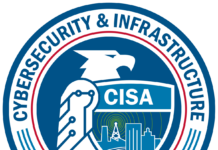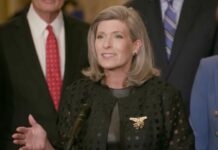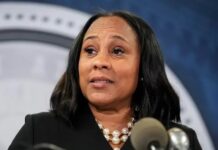As children are back in school around the nation, it is an important reminder that the U.S. Supreme Court has ruled students and teachers do not “shed their constitutional rights to freedom of speech or expression at the schoolhouse gate.” The U.S. Constitution fully protects their free speech and religious expression rights.
However, there are times when school officials, parents, and students alike can be uninformed or confused about these rights that could lead to situations involving bias, censorship, and viewpoint discrimination in schools.
For instance, in the Spring of 2024, Franklin Public Schools in Wisconsin flagged a student video about the Easter Holiday as “inappropriate for broadcast” and denied to show it in the school’s weekly news and entertainment program known as the “The Saber Roar.” A Franklin High School senior produced the video for a class assignment in the Video Production Class and did so according to the guidelines set forth by school officials, which was to deliver an “informational and/or historical” production on a future event. The video included interviews of a pastor and fellow students talking about Jesus Christ – the central figure of Easter for Christians – and how He has changed their lives. The student showed a near-final version to his class and received mostly positive feedback from students, but school officials deemed the video “too religious” and refused to broadcast it to the whole school on “The Saber Roar.” School district officials indicated they wished to avoid “controversy or angering parents” over the potential “religious advocacy” of the video.
Before denying the Easter video, school officials had aired many other student videos on a variety of topics, such as episodes devoted to Black History Month, Halloween, and the religious holiday Ramadan. The Ramadan video featured Islamic religious beliefs and discussions on reading the Quran, fasting, prayer, and even displayed the sights and sounds of the Islamic call to prayer. Under the First Amendment, these religious viewpoints are perfectly permissible and both the Ramadan video and Easter video have equal protection under the law.
In fact, Liberty Counsel sent a series of letters to Franklin Public Schools in April and May2024 reminding the school district that students of all faiths have the right to discuss their beliefs, traditions, and current events in the context of classroom assignments or media productions.
In the April letter, Liberty Counsel cited several U.S. Supreme Court cases affirming every student’s right to religious speech.
- Tinker v. Des Moines Indep. Cmty. Sch. Dist.
– In 1969, the High Court wrote, “It can hardly be argued that either students or teachers shed their constitutional rights to freedom of speech or expression at the schoolhouse gate. This has been the unmistakable holding of this Court for [more than] 50 years.”
– Essentially, the High Court ruled that students have the right to express themselves, as long as it does not disrupt the educational environment.
- Shurtleff v. City of Boston, Massachusetts; Kennedy v. Bremerton School District; and Good News Club v. Milford Central School
– In 2022, the High Court wrote in Kennedy quoting the Good News Clubs decision stating, “the Establishment Clause does not include anything like a ‘modified heckler’s veto, in which … religious activity can be proscribed’ based on ‘perceptions’ or ‘discomfort.’”
– The High Court held that a government entity could not single out Christian religious speech for exclusion in a forum where it permits the free expression of other viewpoints.
- Van Orden v. Perry
– In 2005, the High Court wrote that the Establishment Clause does not “‘compel the government to purge from the public sphere’ anything an objective observer could reasonably infer endorses or ‘partakes of the religious.’”
Liberty Counsel’s May 2024 letter warned, “[T]he District cannot claim that the Ramadan video is acceptable, and [the] video on Easter and the religious significance that Christian students personally attach to the central figure of Easter – Jesus Christ – is somehow unacceptable. …the District cannot show favoritism and deem one student video on religion ‘informational’ or ‘educational’ and another ‘too religious.’”
Liberty Counsel noted that failing to broadcast the video could be interpreted as a broad denial of the student’s free speech rights and an “unconstitutional suppression” of student speech.
In general, public schools are prohibited from discriminating against religious viewpoints. Some additional facts regarding student religious speech include:
- Students have the right to express themselves, as long as it doesn’t disrupt the educational environment. (Tinker v Des Moines Indep. Cmty. Sch. Dist, 1969)
- Students can express their religious beliefs in the classroom when they are relevant to the assignment or classroom discussion. However, schools are permitted to regulate speech in school-sponsored activities (e.g., school newspapers, assemblies) to ensure it aligns with educational goals but cannot prohibit expression without a legitimate educational purpose. (Hazelwood Sch. Dist. v. Kuhlmeier, 1988)
- Public schools must remain neutral regarding religion. (Everson v. Board of Education, 1947)
- A school may not prohibit student religious speech solely because it might be offensive to some. (Morse v. Frederick, 2007)
- Schools can prohibit obscenities, hate speech, and threatening speech. (Tinker v Des Moines Indep. Cmty. Sch. Dist, 1969; Bethel School District v. Fraser, 1986; and Virginia v. Black, 2003).
Liberty Counsel Founder and Chairman Mat Staver said, “Students don’t shed their constitutional rights to free speech when they enter the schoolhouse gate. And they certainly don’t lay down their rights when producing a class assignment. Simply, the school district cannot broadcast a video on one religious holiday and then decline another for ‘religious’ reasons. Viewpoint discrimination is unlawful and violates the First Amendment.”

















